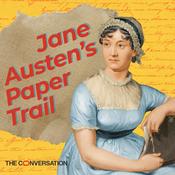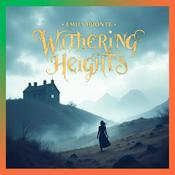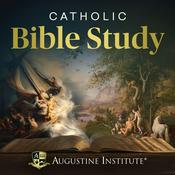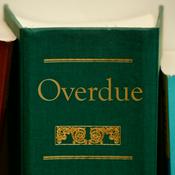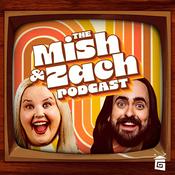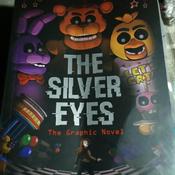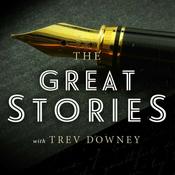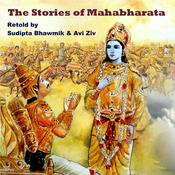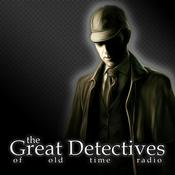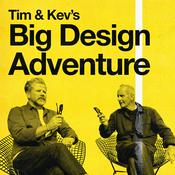391 episodes
David Goodman, author of 'A Reluctant Spy' - Thriller writer discusses juggling projects, soft word-counts, and day-notes
13/2/2026 | 56 mins.David Goodman writes edge-of-your-seat spy thrillers. His debut, 'A Relucant Spy', was published in 2024. We follow Jamie Tulloch, a successful exec at a top tech company, who has a secret... he's part of the Legend Programme. It's a secret intelligence effort to help provide backstories for undercover agents. It's simple, real people, living real lives and are willing to hand over their identities for a few weeks to help a spy blend in. Yet, when Jamie gets a tap on the shoulder, and things go wrong... he needs to play himself well enough to save the world.
It won the McDermid Debut Award at the Theakston Old Peculiar Harrogate Crime Writing Festival, also the Bloody Scotland Debut Prize, and was nominated for many more. He's publishing the second in the series, 'Solitary Agents', in June.
David is at a really interesting time of his writing life. He's in between novels, had debut success, things are being optioned for TV, and whilst still busy with the day job, has been able to give up fridays for writing. We discuss how his writing life has changed now he's firmly in the publishing business. Also, why his 'day-notes' keeps the writing muscle going. You can hear about future writing plans, juggling projects, and waking up early.
Get a copy of the book(s) - uk.bookshop.com/shop/writersroutine
This week's episode is sponsored by Philippa Hall's 'Quick Book Reviews Podcast', take a listen wherever you get your shows.
Support the show -
patreon.com/writersroutine
ko-fi.com/writersroutine
Read the newsletter - writersroutine.substack.com
@writerspod
writersroutine.com
Hosted on Acast. See acast.com/privacy for more information.Sam Sedgman, author of 'The Galileo Heist' - Children's author discusses finding magic in the real world, being confident with curiosity, and getting it finished
06/2/2026 | 1h 1 mins.Sam Sedgman is a 'British Book Award' winning author, who writes fantastic adventure stories for children. He started co-writing with MG Leonard, who has also been a guest on this show, working on the 'Adventures on Trains' series. She was a published author, he was a train nerd, it worked perfectly. In the process they won and were nominated for many awards. Now, he's writing on his own.
'The Galileo Heist' is the new novel in the 'Isaac Turner Investigates' series, which sees Isaac on a quest across Italy, to discover the wonder of light. Sam loves to take an interest, learn every strange fact he can about it, and then use it for a gripping adventure. In the series, he's explored time with 'The Clockwork Conspiracy', maps in 'The Forbidden Atlas', and now light in 'The Galileo Heist'. Sam has also published two non-fiction books - 'Epic Adventures' and 'Epic Cities'.
You can hear why he struggles to get things finished, also how he managed moving from co-writing to solo-writing, and why he builds words around a quirk of numbers.
If you know a child who needs to read more, you'd do well to introduce them to Sam's work. Get a copy - uk.bookshop.org/shop/writersroutine
This week's episode is sponsored by Philippa Hall's 'Quick Book Reviews' podcast. Take a listen wherever you've got this.
Support the show -
patreon.com/writersroutine
ko-fi.com/writersroutine
Subscribe to the newsletter - https://writersroutine.substack.com/
@writerspod
writersroutine.com
Hosted on Acast. See acast.com/privacy for more information.Sally-Anne Martyn, author of 'The Beauty Queen' - Creepy thriller writer discusses 5 am starts, trying to improve, and discovering the plot when the characters do
30/1/2026 | 54 mins.In this week's episode, we chat to creepy thriller writer Sally-Anne Martyn.
Sally-Anne didn't grow up wanting to be a writer. She studied performing arts, working in film and TV, before working many different jobs in many different places, even a stint as a carer in one of England's last asylums. In her 40's, she had the epiphany that perhaps writing had always been waiting for her. She took that realisation very seriously, enrolling on writing courses, and life-coaching seminars, all to try and make her dream of being published come true. When it finally happened, she was shocked at how quickly the realities of being a writer set in. You can hear all about that in the chat.
She's published 'The Clinic', 'The Home', and her new novel is 'The Beauty Queen'. It's all about the journalist Zoe Kincade, who arrives in the rundown seaside town of Sunshine Sands to report on the local talent show. Within moments, it brings up memories of her sister, and the last place she was seen alive, when she was also crowned Miss Sunshine Sands.
We discuss dark thrillers, and how she's always improving her routine. You can hear why Sally-Anne is envious of old-school writers, how different jobs have influenced her novel ideas, and why she's a member of the 5am club.
Get a copy of the book - uk.bookshop.org/shop/writersroutine
This week's episode is sponsored by 'Whale Cemetery', the 12th instalment in the 'DCI Finnegan Yorkshire Crime Thriller' series by Ely North. Get a free book here - https://elynorthcrimefiction.com/
Support the show -
patreon.com/writersroutine
ko-fi.com/writersroutine
Subscribe to the newsletter - writersroutine.substack.com
@writerspod
writersroutine.com
Hosted on Acast. See acast.com/privacy for more information.Georgie Codd, author of 'Never Had a Dad' - Memoir writer discusses making people care, planning an adventure, and finding a father figure
23/1/2026 | 1h 6 mins.Georgie Codd is a writer of all-sorts. She's dabbled in fiction, written for publications, created the 'BookBound' literary festival, and now focuses on narrative non-fiction.
Her first book, 'We Swim to the Shark', came out in 2020, and followed Georgie’s quest to overcome her deepest fears by crossing the planet, learning to scuba dive, and attempting to swim with the largest fish in the world: an adult whale shark. She's followed it up with 'Never Had a Dad', which sees Georgie advertise for a father figure. It was inspired by a strange meeting with an older man on holiday with her mum. We talk about how she expanded on that idea, and how much she can plan and plot an adventure memoir.
You can hear about the differences in the process of fiction and narrative non-fiction, and how she decides what her next adventure should be. We chat about how she makes a reader care, being trained to write prose fiction, and how she works on the go whilst being easily distracted.
Get a copy of the book - uk.bookshop.org/shop/writersroutine
This week's podcast is sponsored by 'Whale Cemetery: Murder On A Smuggler's Tide', the new book in the 'DCI Finnegan Yorkshire Crime Thriller' series by Ely North. Find out more and get a free book at elynorthcrimefiction.com
Support the show -
patreon.com/writersroutine
ko-fi.com/writersroutine
Subscribe to our newsletter - writersroutine.substack.com
@writerspod
writersroutine.com
Hosted on Acast. See acast.com/privacy for more information.Sam Mills, author of 'The Watermark' - Speculative fiction author discusses playing with genre, switching projects, and teasing burnout
16/1/2026 | 56 mins.Sam Mills is an innovative and wildly creative writer, who has always wanted to publish books. She's written non-fiction books, 'Uneven', 'The Fragments of my Father', and others, also crossover, genre-bending novels like 'Blackout', and 'The Quiddity of Will Self'. She's written for The Guardian, The Independent, the New Humanist and more, along with running 'Dodo Ink', a small indie press that publishes daring and difficult literary fiction.
Her new novel is 'The Watermark'. Inspired by 'Inception', it tells the story of Rachel and Jaime, who become trapped by Augustus Fate, a once-lauded novelist, in his latest creation. They must find their way back home through a labyrinthine network of novels, flitting from a harsh Russian Winter, to Victorian Oxford, from a utopian metropolis to an AI-dominated future.
We discuss why she likes the romance of being a writer, and that helps her deal with the instability of it. Also, you can hear how she creeps close to the line of burnout, yet knows exactly when to pull back. Sam shares pen opinions, and how she's developed the cafe-writer's sense of when to leave.
Get a copy of the book at uk.bookshop.org/shop/writersroutine
This week's episode is sponsored by the 'Quick Books Reviews Podcast', take a listen wherever you get your shows.
Support 'Writer's Routine' -
patreon.com/writersroutine
ko-fi.com/writersroutine
Subscribe to the newsletter - writersroutine.substack.com
@writerspod
writersroutine.com
Hosted on Acast. See acast.com/privacy for more information.
More Arts podcasts
Trending Arts podcasts
About Writer's Routine
How do the best writers get to work?In every episode, we'll chat to an author about their writing day. Where do they work? What time do they start? How do they plan their time and maximise their creativity, in order to plot and publish a bestseller?Some are frantic night-owls, others roll out of bed into their desks, and a few lock themselves away in the woods - but none have a regular 9 to 5, and we'll find out how they've managed it. Hosted on Acast. See acast.com/privacy for more information.
Podcast websiteListen to Writer's Routine, Table Manners with Jessie and Lennie Ware and many other podcasts from around the world with the radio.net app
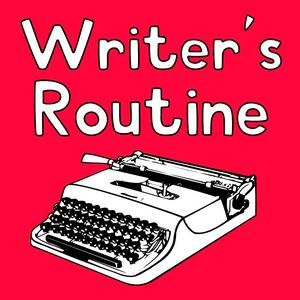
Get the free radio.net app
- Stations and podcasts to bookmark
- Stream via Wi-Fi or Bluetooth
- Supports Carplay & Android Auto
- Many other app features
Get the free radio.net app
- Stations and podcasts to bookmark
- Stream via Wi-Fi or Bluetooth
- Supports Carplay & Android Auto
- Many other app features


Writer's Routine
Scan code,
download the app,
start listening.
download the app,
start listening.





